
HANOVER TEACHERS' MEETING REPORT
(13 OCT – 15 OCT)
"Another notch on our European travellers' walking sticks...".
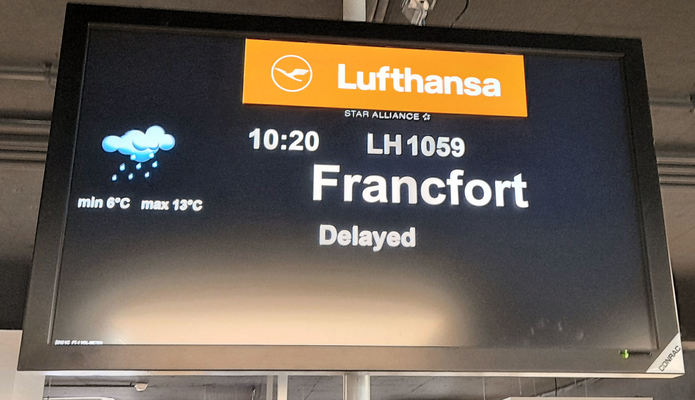
The international teams left their respective countries and headed towards Hanover Germany on Wednesday October 13th to arrive at their hotel near the Hauptbahnhof after a more or less eventful journey. We were met there on the morning of the 14th in an appreciated show of hospitality by teacher Marius Eckert who took us to Leonore-Goldschmidt-Schule in Mühlenberger Markt to attend our first work session.
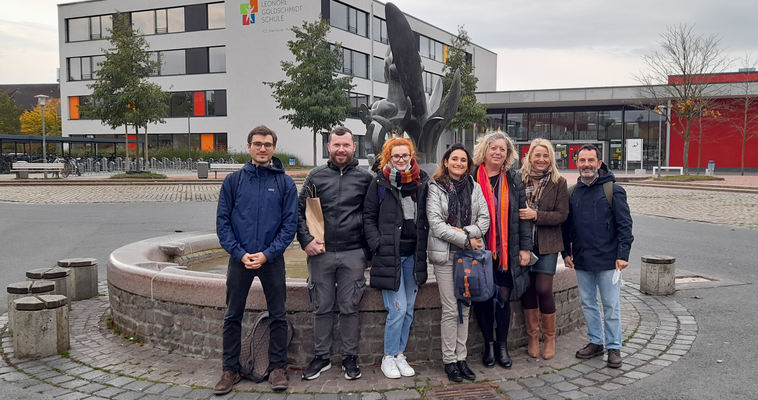
We were greeted at the school by our German partners Joachim Rocholl and Erik Breves who also introduced us to school board members Nils Nordmann and Georg Baumbach. The international teams were respectively represented by Enrique Veganzones, Cristina Ramón Navarro and Amalia Nadal from Spain, Céline Meslard and Olivier Cantinelli from France, Stefani Markosksa and Vlatko Jakjimoski from Macedonia.
The group went over the organisational details and Enrique Veganzones, as group leader, provided answers to the numerous questions put forward by the partners in terms of the mobilities' financial management and overall organization. Over the day, other points were discussed around the tasks assigned to each partnering team and the calendar of the next two meetings was set for Hyères, France in January and for Hanover, Germany in March / April. We were then taken for a comprehensive tour of their school by the German teachers that provided a fitting illustration of Leonore-Goldschmidt-Schule's staunch commitment to uphold the Sustainable Development Goals in every aspect of their environment, as declined below:
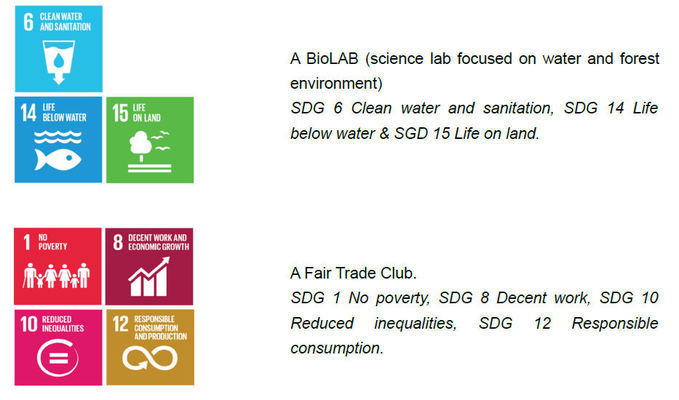
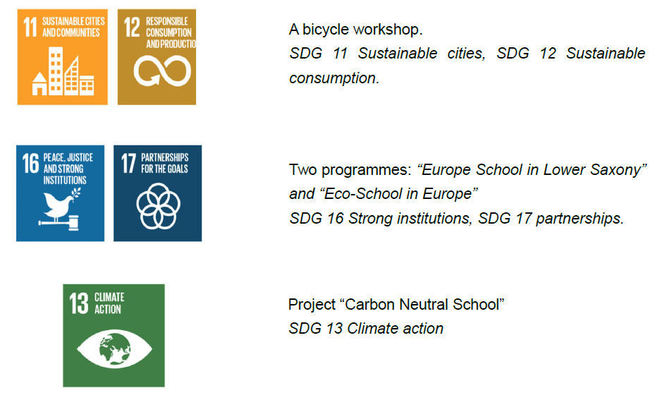
Ongoing developments: SDG steering group, SDG project week for students, school development process as member of the “Modellprojekt Zukunftsschule” (awarded by the state Ministry of Education)
The SDG Goals are displayed in all the different sectors of the school in view of the students as a visual and informative support to the initiatives that are implemented by the teams. The tour of the school was particularly enlightening on how innovative the school has proved to be in creating a learner-friendly environment, with original set-ups such as a "dog office" with a permanent residence of three dogs assigned to the well-being of students who may feel at times emotionally overwhelmed and who will find the soothing presence of a pet a support to overcome their occasional bouts of anxiety.
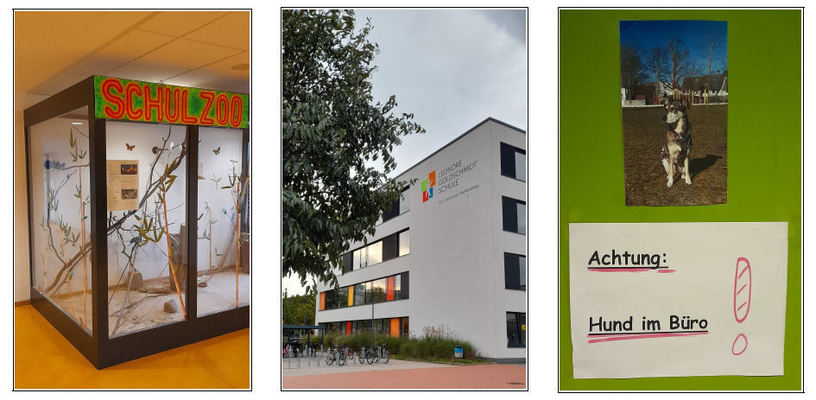
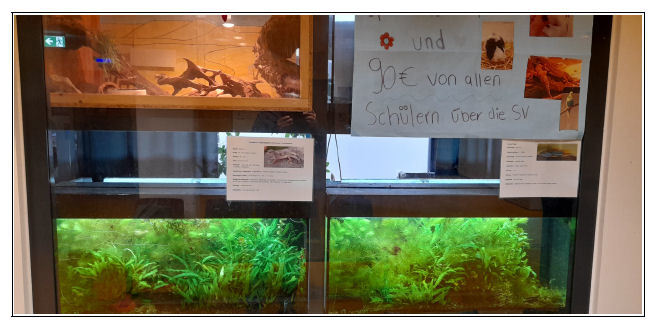
The spacious, Mondrian-like aesthetics of the building with its brightly coloured floors and panes and large bay windows allowing the light to flood in contribute to make Leonore-Goldschmidt-Schule an extremely cosy and hospitable work environment.
After a lunch shared in common, the afternoon was devoted to further organizational details regarding the responsibilities of each partner that had previously been defined as such:
-
San Javier: coordination of the partnership, assessment of fulfilment of the timetable of activities, assistance regarding the participation and management of all partners, creation of the project blog and Google account apps, and coordination of the short training event for teachers together with the German school.
-
Hanover: creation of tools and proceedings for the project's assessment through questionnaires (meetings, participation, satisfaction, etc. regarding students, teachers and families), on Google forms.
Organisation of the training event due to their expertise as certified school by the German Education Authorities.
-
Hyères: Twinspace coordination (publishing the materials, project journal, creation of forums and threads for the international students' groups). Assignment of teachers and themes to the forums.
-
Kicevo: preparation of audiovisual materials from the meetings (pictures and albums on the shared platforms, short videos and reports) and dissemination of activities and their visibility on the Twinspace project journal and social networks (Facebook and Instagram).Social networking: Instagram, Youtube.
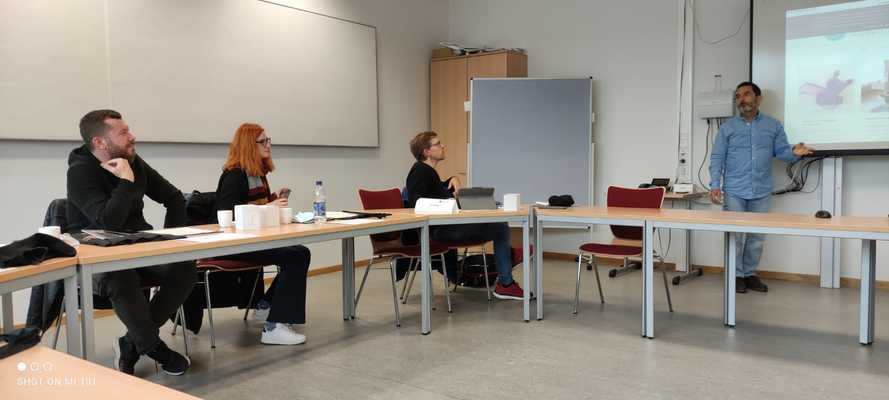
After a busy first day's work the team then headed back to the town centre and bonded over a nice relaxing and sociable dinner that allowed us to learn a bit more about one another.
On Thursday, October 15th the team gathered at the school for another work session and discussed Covid protocols in the different countries and travel arrangements.
The question of accomodation was also broached as well as the different alternatives in travel itinerary offered to ensure an environmentally responsible means of transportation.
We also drew the outline of the preparatory work that will be assigned to four forums on the twinspace in relation to the goals that will be presented in Hyères through their activities:
The following lay-out was agreed upon to be set up on the Twinspace to carry out the preparatory activities:

The session ended with a presentation of a workshop and discussion at the “EnergieLAB” (science lab focused on climate change learning) with science teacher Dr. Birgit Virdis with the German Erasmus student group.
Through empirical experimentation and various demonstrations, the teachers were introduced to the question of CO2 emission and its effect on Global Warming. Students and teachers alike actively participated in the hands-on demonstration.
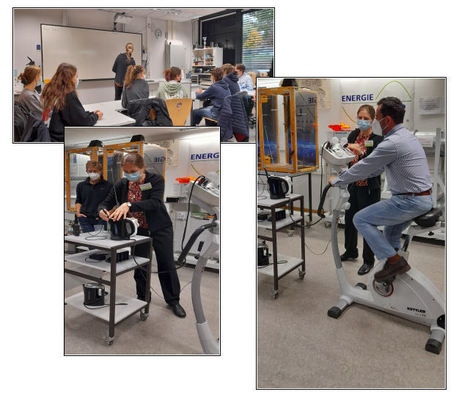
The certificates of attendance were delivered to the participants and this concluded our meeting at the school. The teachers were taken for lunch by the German teachers who then proceeded to take us for a tour of the city towards the Town Hall where we were greeted by Udo Büsing of the Hannover Sustainability Agency. Through his extensive presentation we were able to understand how the school operates hand-in-hand with the city to implement its programmes aimed to educate youths on sustainability goals.
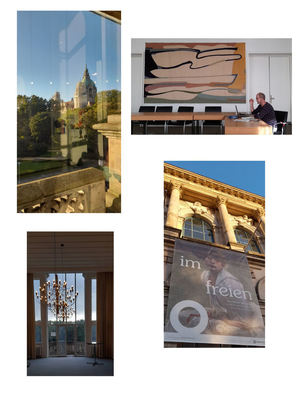
The tour also comprised a presentation of the history of the building, a former palace, and the larger rich history of the city of Hanover itself.
After the tour, the group was treated to a visit of nearby art museums before heading to a restaurant to discover the local specialities, a perfect conclusion to our first meeting that ticked all the boxes in its goals to bond as a team and efficiently cooperate in the meetings to come, but also to create lasting friendly relationships.
We are particularly grateful to our German hosts for the success of this first encounter and aim to reciprocate in the following ones.